Search Results
Showing results 21 to 40 of 66

Exploring the Solar System: Mission to Space Board Game
Source Institutions
In this tabletop board game, players will represent a team of scientists and engineers sending a spacecraft on a mission to space.
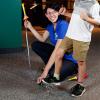
Exploring the Solar System: Stomp Rockets
Source Institutions
In "Exploring the Solar System: Stomp Rockets," participants learn about how some rockets carry science tools—not scientists—into space, and how a special kind of rocket called "sounding rockets" can
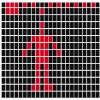
Is Anybody Out There?
Source Institutions
Learners listen to and try to decipher a radio message that was sent from Earth to possible intelligent civilizations.
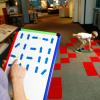
Exploring the Solar System: Mars Rovers
Source Institutions
In "Exploring the Solar System: Mars Rovers," participants learn about how scientists and engineers use robotic rovers and other vehicles to explore distant worlds, and experience some of the challeng
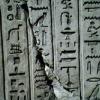
Hieroglyph Holiday
Source Institutions
In this activity about archaeology, learners will explore different Egyptian hieroglyphs and recognize their meanings and uses.
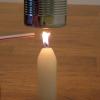
For Your Eyes Only
Learners build particulate matter collectors--devices that collect samples of visible particulates present in polluted air.
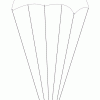
The Parachuting Egg
Source Institutions
In this activity, learners work in groups to design a parachute out of household items that keeps an egg secure when dropped from a certain height.
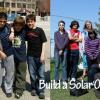
Build Your Own Solar Oven
Source Institutions
Learners follow directions to construct a solar oven that really cooks! The solar oven uses aluminum foil to reflect sunlight into a cooking chamber, which is painted black.

Boats Afloat
Source Institutions
In this water activity, learners build boats that float and sink. First, learners listen to the book, "Who Sank the Boat" and practice making predictions throughout the story.

Properties of Dust
Source Institutions
In this activity, learners carry out a scientific investigation of dust in their classroom. Learners produce an analysis on graph paper of the dust they collect over the course of a few days.
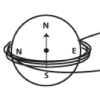
How Do We Convert Mechanical Energy into Electrical Energy?
Source Institutions
In this activity, learners use a compass, powerful magnet, and copper magnet wire to build a special generator known as a dynamo.
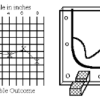
Topographic Investigation: Map an Underwater Surface
Source Institutions
In this activity, learners create a map of a hidden surface using a "sounding stick" -- a technique similar to how underwater maps were once made.

Hot Air
Source Institutions
In this activity, learners set up an experiment to investigate the effects of hot air on the path of a laser beam.
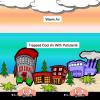
Turning the Air Upside Down: Convection Current Model
Learners see convection currents in action in this highly visual demonstration. Sealed bags of colored hot or cold water are immersed in tanks of water.
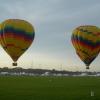
Convection Demonstration
Source Institutions
In this quick activity (located on page 2 of the PDF under GPS: Balloon Fiesta Activity), learners will see the effects of convection and understand what makes hot air balloons rise.

Filtration Investigation
Source Institutions
In this activity, learners explore how engineering has developed various means to remove impurities from water.

Trash Talkin'
In this activity, learners collect, categorize, weigh and analyze classroom trash and discuss ways that engineers have helped to reduce solid waste.
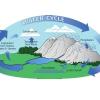
Moving Without Wheels
In a class demonstration, learners observe a simple water cycle model to better understand its role in pollutant transport.

What Color is Your Air Today?
Learners develop awareness and understanding of the daily air quality using the Air Quality Index (AQI) listed in the newspaper or online.

Using a Simple Astrolabe
Source Institutions
In this activity, learners use an astrolabe to measure the altitude of objects. Learners will first practice taking measurements by measuring the altitude of trees and buildings.
